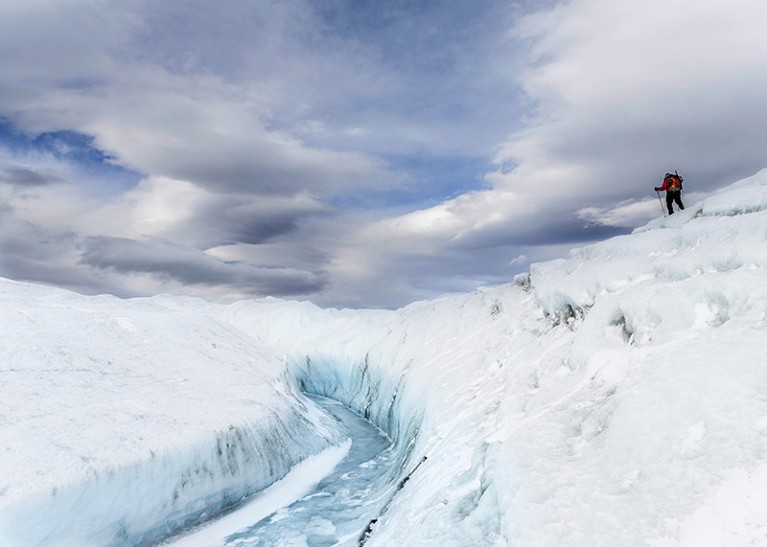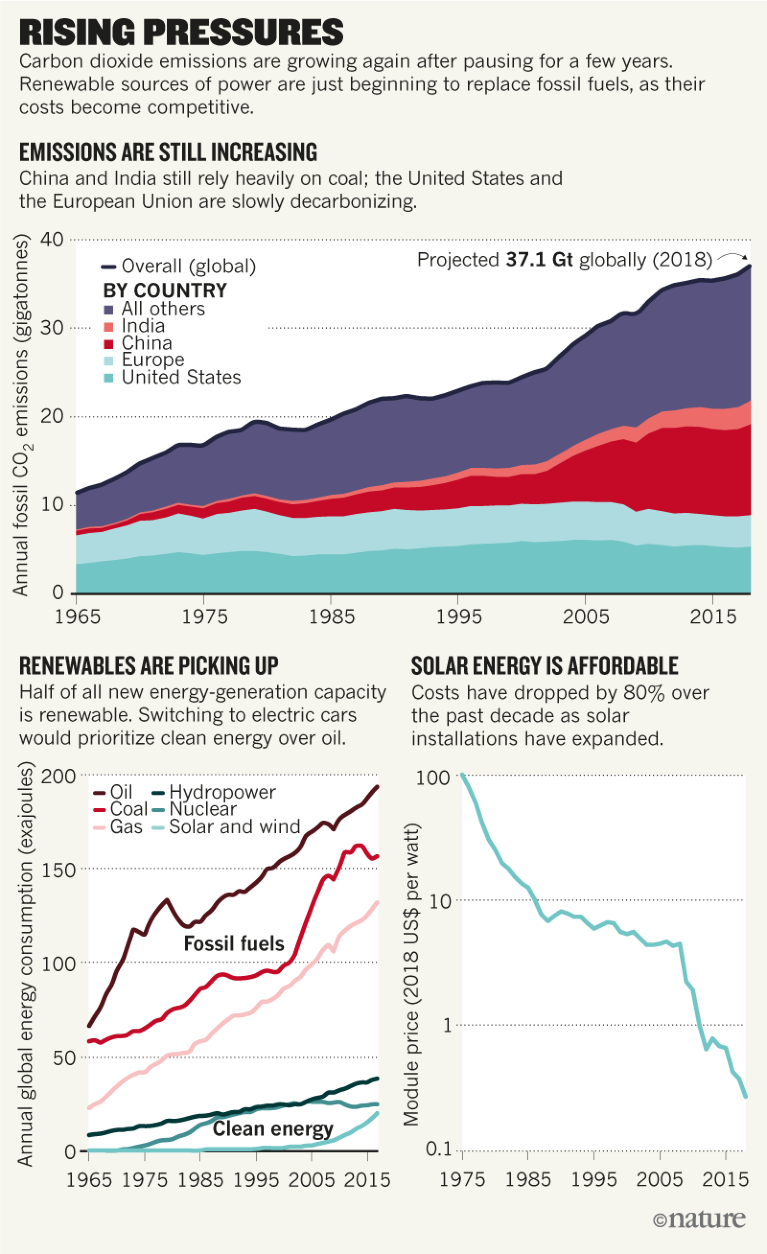Hello Nature readers, this is the news that matters in science today. You can also sign up to get it free in your inbox.

Greenland's massive ice sheet is more than 3 kilometres thick in some places.Credit: Martin Zwick/REDA&CO/UIG via Getty Images
Greenland ice melting is accelerating
The Greenland ice sheet is melting at an increasing rate, and the volume of meltwater running into the ocean has reached levels that are probably unprecedented in seven or eight millennia. The findings, drawn from ice cores stretching back almost 350 years, show a sharp spike in melting over the past two decades. “Climate change is impacting the cryosphere much sooner than we thought, and the impact is much larger than we thought,” says glaciologist Mary Albert.
Mysterious DNA ‘super-enhancers’
Treatments that target cancer by focusing on segments of DNA called ‘super-enhancers’ are working their way to the clinic for the first time. But scientists are still debating how they work, and whether they actually represent a fundamentally new way of regulating genes.
China backs Plan S
In a surprise boost to the open-access movement, librarians and funders in China have said that they intend to make the results of publicly funded research free to read immediately on publication. The country’s National Science Library, National Science and Technology Library and Natural Science Foundation, a major research funder, all announced support for the European-led open-access pledge known as Plan S.
Ichthyosaurs had blubber and patterned skin
An exceptionally well-preserved fossil of a 178-million-year-old Stenopterygius — a whale-like ichthyosaur — reveals the marine reptile’s soft tissues in unprecedented detail. Researchers “recovered still-flexible remnants of the original scaleless skin”, evidence of a layer of blubber and signs of the pigment cells that would have given the creature’s skin dark and light shading.
FEATURES & OPINION
Let’s stop climate catastrophe — this week
Global carbon dioxide emissions are projected to go up in 2018 by more than 2%, putting economies and the homes, lives and livelihoods of billions of people at risk, argues climate diplomat Christiana Figueres and her colleagues. Happily we have made remarkable progress on the key technologies and the local will that we need to reverse the trend. The group of leading climate-policy advocates urge the leaders who are gathered this week at the annual United Nations climate talks to make it happen.

Sources: Emissions: Global Carbon Project; Renewables: BP; Solar: Bloomberg NEF
How to respond to CRISPR babies
The claims from He Jiankui that he has used gene editing to produce twin girls demand action, argues a Nature editorial. A starting point would be a global registry to record preclinical research that involves gene editing in human embryos.
Do swanky buildings spark discovery?
From travertine courtyards to bean bag-filled boardrooms, a new book offers an agreeable, and sometimes surprising journey through the history and trends of luxe laboratory buildings. But a lack of hard data leaves lots of questions unanswered about the effectiveness of architecture in inspiring breakthroughs, says reviewer Kendall Powell.
